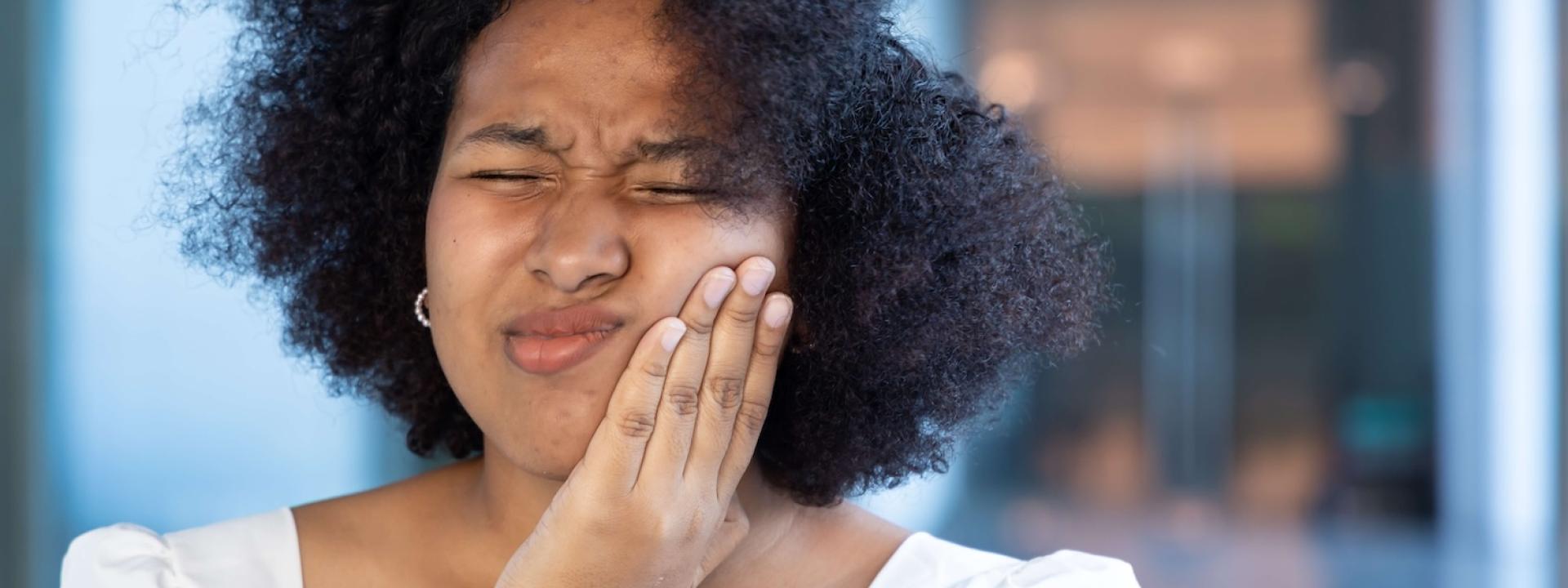Imagine you’re enjoying a delicious steak, savoring each flavorful bite. Suddenly, you feel a strange sensation in your mouth. Panic might rise as you realize your dental crown has come loose. Oh NO! What should I do?
First, take a deep breath. Losing a crown can be surprising, but it’s not a dental emergency in the traditional sense. However, it’s important to act quickly to protect your exposed tooth and get your smile back to looking its best.
Why Do Crowns Fall Off? Understanding the Causes
Dental crowns are incredibly durable restorations designed to last for many years. So what are the possible reasons a crown could come loose from a tooth?
1. Severe decay or fractures to the supporting tooth structure.
2. Failure of the cement that bonds the crown to the tooth.
3. Trauma - Accidents happen! A hard blow to the crown can cause a failure of the underlying structure or the cement that helps the crown hold onto the tooth.
4. Erosion - acidity or abrasion can undermine the supporting tooth structure to the point that the crown is no longer sealed to the tooth.
5. Chewing things you shouldn't - Ice, hard candy, rocks, etc. Teeth aren't designed to chew these things. Neither are crowns.
6. Infection at the base of the tooth that lifts the tooth causing to much force on the crown when you chew.
What to Do When a Crown Falls Off
1. Find the crown. If you swallowed it......yeah, don't try to find it. That is never going back in your mouth! :)
2. Clean the crown with water. DON'T do this over the sink. Crowns are smooth and slippery.....
3. Do NOT put the crown back in your mouth. A crown must be perfectly fitted and seated with very strong cements to stay in place. If a loose crown is put back in, it is very easy for it to come loose while sleeping. This can lead to the crown being aspirated down into your airway or lungs, both of which can lead to death. It's not worth the risk. Leave the crown out of your mouth.
4. Put the crown in a ziplock or container so it can't easily be misplaced.
5. Contact your dentist. Most uncovered teeth are not painful as long as you don't chew food on them or put hot/cold/spicy foods on that side of the mouth. As such you will generally be advised to use over the counter pain medication (ibuprofen or tylenol) and avoid chewing on that side until the dental team can evaluate your tooth on their next work day.
6. Do brush around the tooth to minimize plaque accumulation as long as it doesn't cause significant discomfort.
What to Expect During Your Dental Appointment
1. Bring your crown to the dentist. I know. Sounds obvious. But........
2. Your dentist will take a radiograph ("xray") of the effected area. Don't fight it. It is necessary to be certain a bigger problem isn't hiding beneath the surface.
3. Your dentist will try the crown in to be certain the crown and tooth can still achieve a perfect seal. Without a perfect seal the crown will fall off again, or worse.
4. The crown shape may need to be adjusted for it to correctly fit into place. Adjacent teeth can shift into an open space surprisingly fast.
5. If there is no damage and an ideal seal and fit can be achieved, then the crown can be cemented back in place.
6. If a problem is discovered, your dentist will outline a plan to restore the tooth and get a new crown in place to preserve the tooth.
Closing Thoughts
Losing a dental crown can be a disruptive experience, but by following these steps, you can manage the situation effectively. Remember, prompt action is key! The good news is, with a visit to your dentist, you can often get your crown reattached or replaced, restoring your smile and oral health. Don’t hesitate to reach out to your dentist if you have any questions or concerns about your dental crown or your overall oral health. They’re there to help.
By prioritizing regular checkups, maintaining good hygiene habits, and making informed choices, you can prevent future crown loss and keep your smile healthy and strong for years to come.

